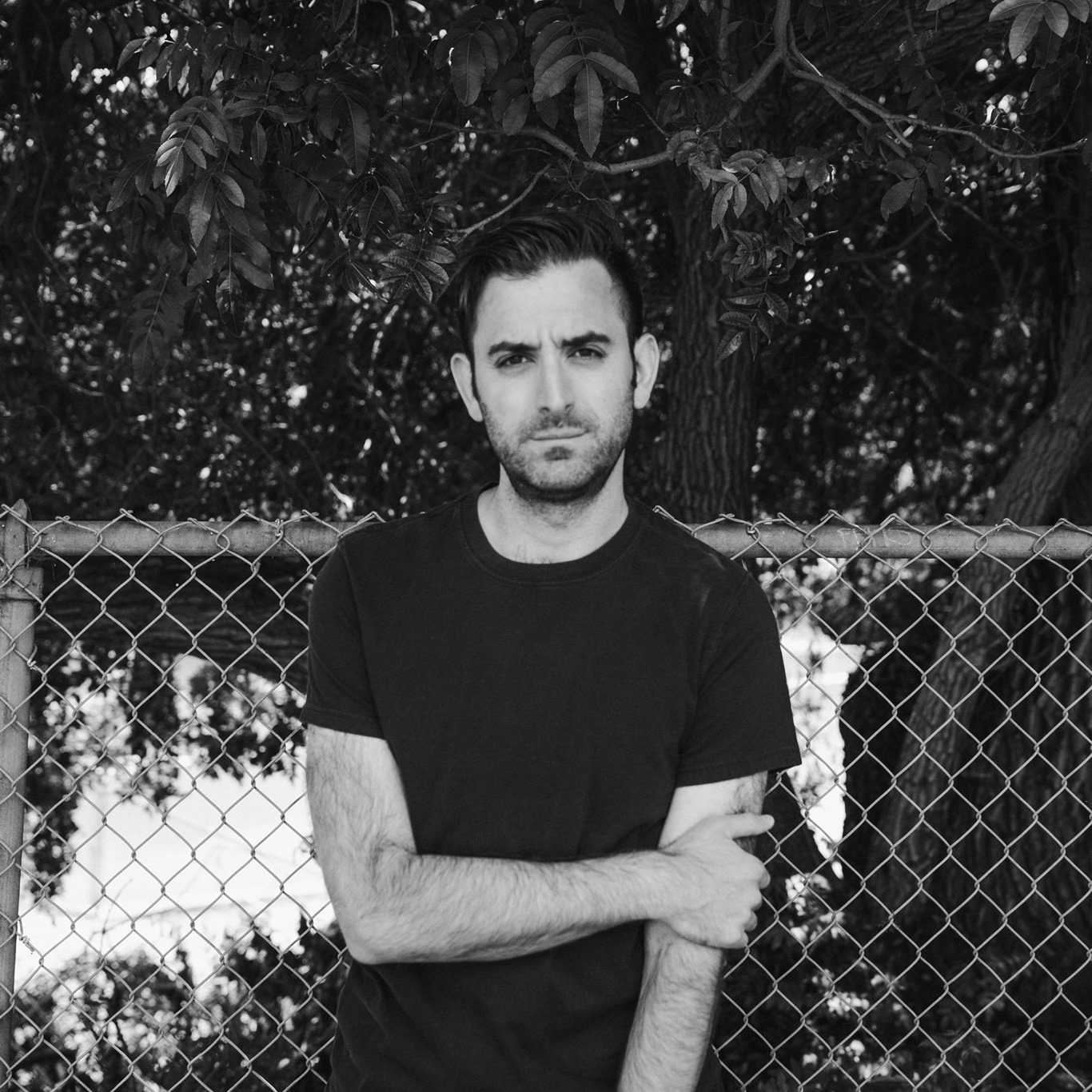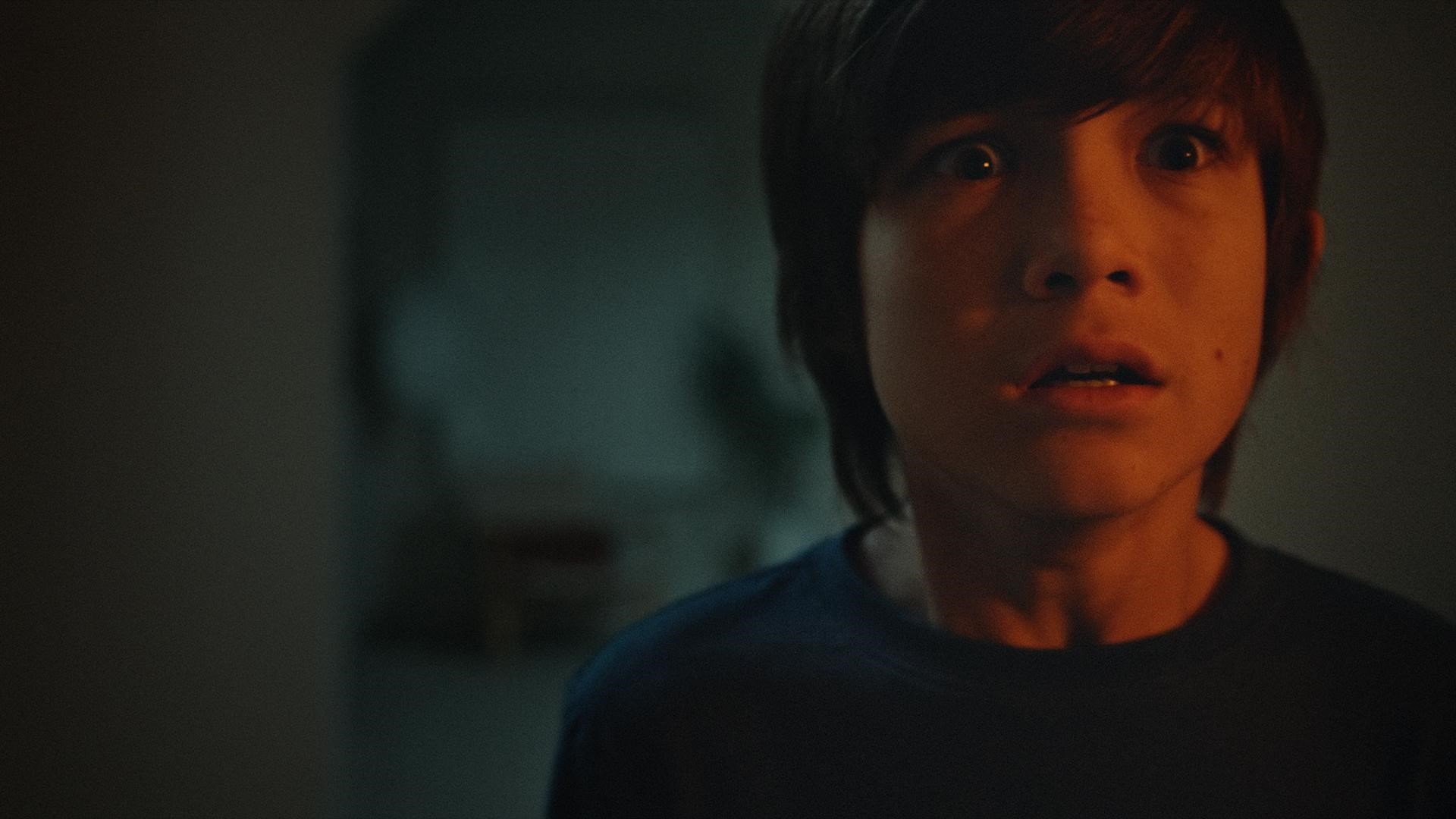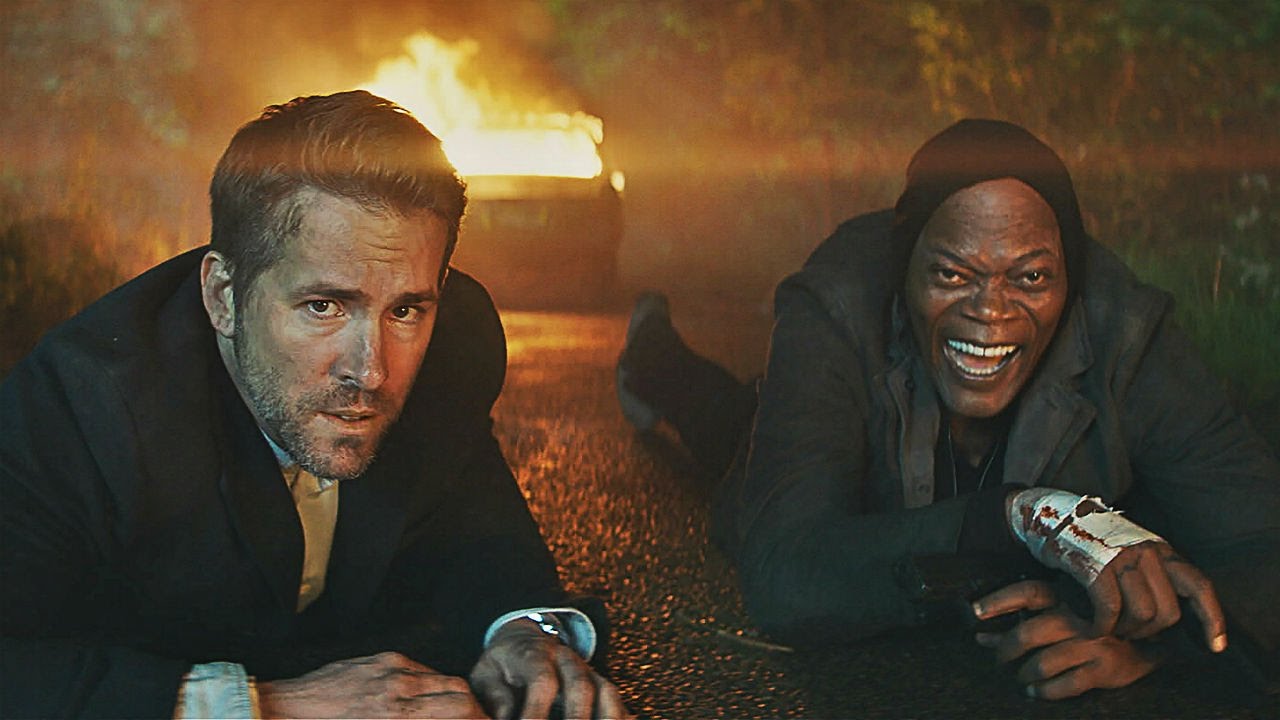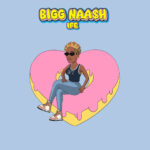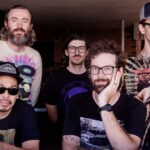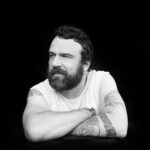There is not a cloud in the sky when Chicago natives Sleep On It take the stage at the opening day of Riot Fest 2017. Friday afternoon sets are not always known for their crowd size, especially when those afternoons occur during the school year, but that is not the case today. The grounds in front of the Radicals Stage have slowly disappeared as a sea of tweens, teens, and twenty-somethings gather to see their hometown heroes celebrate the start of the biggest chapter in their career to date. The band’s debut album, Overexposed, was announced just two weeks prior. This show will be the group’s last in the area before the album is released, and the band is dead set on thanking those who had helped them from the beginning with this set. The forecast is calling for temps in the low eighties, but that burning star in the sky seems dead set on putting those gathered at Douglas Park to the test. The crowd, perhaps unsurprisingly, is more than up to the challenge.
Four days prior to this moment Sleep On It were performing to a sold out crowd as one of three bands supporting State Champs at The Stache in Grand Rapids, Michigan. The room that night would hold just over four-hundred screaming fans, many of whom had arrived more than six hours prior to doors in order to guarantee their spot near the stage. Sleep On It had arrived fairly early as well, having driven up from Pennsylvania following a set at Four Chord Music festival the night before. “It was a very long day,” rhythm guitarist and backup vocalist Jake Marquis tells me as we stand outside the venue doors. “We got there way too early, but we got to see a lot of bands we love, including The Starting Line and The Dangerous Summer. They [Dangerous Summer] even played one new song.”
Marquis and Sleep On It vocalist Zech Pluister have been exchanging tweets with me since I first discovered the band in the early months of 2017. This is the first time the three of us are meeting in person, but night after night of interacting with fans has provided both Marquis and Pluister with time to hone their conversational skills. Several minutes of fan talk about the bands we like pass before our focus turns to the reason we’ve gathered to speak. Earlier that same day a publicist for Equal Vision Records had sent a copy of Overexposed to my inbox, which I was now meant to discuss at length with the men in front of me. “We can talk about anything,“ Pluister tells me. “We’ve only done one or two other interviews since announcing the record,” Marquis adds. “It feels good to finally talk about it.”
Sleep On It released their breakout EP, Lost Along The Way, in October of 2016. Featuring the anthemic breakout single “Unspoken,” the record quickly established the band as one of pop-punk’s most promising new names. The band the majority of their time since the release on the road, which might make a few nervous about the fact an album has already come into being, but Pluister tells me the group’s new album has been in the works for longer than most realize. “I like to say we were writing for the record while working on the EP. We were writing a lot, and there were a couple of songs we decided to hold off on releasing until we got around to making a proper album. “Photobooth” was one of them, but there are a couple of others as well. We recognized some of the material we were creating was not as cohesive as we would have like, but that didn’t mean they were bad songs. We knew the EP was going to be five tracks, so we tried to be separate anything we wrote that wouldn’t make that a tight, cohesive release.” Marquis, nodding, adds “We purposely didn’t put any ballads on the EP because we wanted it to be a straight banger. So we shelved anything slower or ballad-like for the record, but it’s by no means a slow record.”
Marquis is telling the truth. Overexposed is a far more dynamic release than Lost Along The Way, offering a pitch perfect combination of modern pop-punk anthems and emotionally-driven songwriting blended with just enough alternative influence to help the group stand out from their genre peers. Their music is as much a product of the mid-2000s Warped Tour headliners they seem to worship as it is the realities of living in the world today. It’s hopeful realism grounded by the burden of our trying times, which is not an easy perspective to capture. “Making time to focus on the album and write was difficult, but once we all got into a room things started coming together,” Pluister tells me. “Me and TJ (Horansky, Sleep On It’s lead guitarist, backup vocalist, and co-songwriter) had an idea for what we wanted the album to sound like. We wanted an ebb and flow, we tell people all the time, it’s like you listen to From Under The Cork Tree or Ocean Avenue, anything from those early-2000s, there’s such good highs and lows in those records that keep you wanting to hear what the next song is going to be so going into the record it was definitely a thought of ‘we want to do that’. Not that the records coming out now aren’t good, there’s so many good records that have come out in the past few years, but we were like we want that record that hooks you right in the beginning and keeps bringing you deeper into it as the record progresses. And I like to think that we did that. I hope so.”
A popular theme in pop-punk songwriting over the last decade involves bands using their personal narrative as a thread that ties their records together. For those bands, each song tells a story that ties into every other story, often with callbacks and in-jokes only dedicated fans will fully appreciate. Overexposed opens with Pluister singing “I’ve been trying to lose myself for a year,” which some fans may hear as a reference to the “Unspoken” lyric “its been a long year” from Lost Along The Way. This connective tissue is intentional says Pluister, but he makes it be clear that Overexposed is in no way a concept record. “It’s very by itself, it’s on its own, and so with the first song on the record we decided we want people to know what they’re getting into. We reference the song “Window” in the first song, we throw it back and reference an old song from before I was in the band called “Glass Bones” as well because that song almost went on the record. We almost re-recorded that song with me singing for the record but decided against it very much towards the end of the recording process.”
There are corners of the music industry where Sleep On It may already be considered household names, but Pluister and Marquis realize Overexposed will be the first time many hear their work. With this in mind, they and the rest of the band spent extra time ensuring the album said everything the wanted to say as clearly as they could state it. “There were a few last-minute shuffles with the songs,” Marquis explains. “We went in with about sixteen tracks and then cut it to twelve. Well, thirteen technically because we recorded “Memorial Day” in the same session.”
If there is one overarching theme to the record it lies in the sacrifices made so the album could exist. “We chose Overexposed as the title,” Pluister begins, “because when we were writing what would become the title track we all felt a deep emotional connection to the material. That song is really about the sacrifices that we give up being in a touring band, like losing friends and losing connections with loved ones, but also all the reasons we still believe this band is worth it.” Marquis nods in agreement before referencing the song in question by loosely quoting its opening line, “You give up a few things chasing a dream.”
This, again, brings us back to what makes Sleep On It so special. In a time where it seems everyone in their genre is writing songs about the pains of chasing dreams while traveling the open road this band still finds a way to feel unique. When asked if they purposely try to avoid being a group who is pigeonholed as solely writing songs about the road, both men are quick to acknowledge that many bands write that way because it is their reality. “It was one of the reasons I was almost hesitant about releasing “Counting Miles in the beginning, “Pluister explains. “I don’t want to be that band that just has songs about touring.” Marquis seconds this notion, but stresses that “Counting Miles” is by no means a typical road song, adding “I think it’s important when you’re talking about things like cliché topics to find a new way to say something that someone’s already said because there’s a degree of cliché in everything.” Pluister agrees with this perspective, noting that songs about the road is “not a topic that we deliberately avoid, but….I don’t mean to make it sound like we’re these wells of emotion, we just have other shit to write about. It’s such a cliché thing to say, but we’ve all been through a lot of shit, we’ve all been hurt, we’ve all lost people, we’ve all lost things, and it’s just like — why write a song about something that everyone else has written about already, probably better than we ever would, when we could just write different songs?”
Speaking to the group’s songwriting a bit further, Pluister uses the second Overexposed single, “Window,” to dissect the approach taken to craft Sleep On It’s material. “Window” was the brain-child of TJ. I’m the less metaphorical writer, I’m more the straight-forward. I love that song. Me and TJ, our writing process is very organic. He’ll just send me a demo with either like, there’s been times where he’s just kind of hummed a melody over something and I’ll put lyrics to it and vice versa. He’ll just send me a track and then I’ll just put my spin on it and I’ll do the same to him. And there’s some songs where we’ll be at practice and that kind of moment will just click and “See You Around” was that way.”
Before Pluister can finish the final word of his last sentence, Marquis jumps in to ad that the song “New Way Home” was created in a similar fashion. “I still remember writing that song,” Pluister states with his eyes lost in the memory of that time. “That was song was awesome. It was one of those things where we were writing it and we kind of stopped and we just like… “Yo, this sounds like the fucking Starting Line. That’s sick!”
Digging deeper into what has changed since the last release, our conversation soon turns toward “A Brighter Shade of Blue” and the aforementioned “Photobooth,” both of which could be classified as the band’s first attempts at a ballad. Horansky adds piano to “Blue,” using a talent he has been honing since taking lessons as a child, while “Photobooth” feels like a bit more akin to something you might here on the radio. Pluister says the song is like an “massive anthemic ballad” from the 1980s, which is fairly spot on. The song build, almost inconspicuously, before blossoming into a wall of sound and emotion that will likely move some listeners to tears. “It’s the kind of song you play when you’re having a good cry while driving around with the windows down,” Pluister states.
Fans worried that Sleep On It’s efforts to grow may have diminished their pop-punk fury will be happy to note the band was careful to not lean too heavily on material that might be considered outside their normal sound. For as much as they experiment on Overexposed they always get back to the high energy, highly emotive sound that helped establish them in the crowded alternative community. “We debated about track listing probably more than anything else,” Marquis explains. “In part because of the songs, but also because of how they fed into one another. We wanted to have good sonic transitions.” Pluister takes this notion and runs with it, explaining “Going into it we knew “A New Way Home” was gonna be track one, “Photobooth” was track six, and “Autumn” was track twelve. From there it was like well what’s going into the A-side and what’s going on the B-side? And we wanted to figure out the track listing so we could record not so much like transitions in a way but we could go into it going “ok well we’re going to in from “Always Crashing” into “Photobooth”, how can we do that transition?” And then it was the same way, one thing that happened organically was like “Fireworks” into “Leave The Light On”, we weren’t expecting. We were just kind of listening through what we had tracked that day and we were like “we’re in the B-side, we just came out of the ballad, we hit the big jumpy pop-punk banger, let’s try “Fireworks” here.” And we did “Fireworks” and were like, yeah that’s cool, and then “Leave The Light On” was kind of just at track nine and that drum fill ripped in and we were like oh, alright!”
This leads Pluister to recall earlier comments made in our conversation about the albums from bands who inspired the band. “That really hits back to the whole Ocean Avenue, Take This To Your Grave thing where everything just happened to…those songs, be it purposefully or not, just happened to seamlessly keep flowing song to song and there was never that moment of…there was never two seconds of silence where you’re like ‘what song is going to come next?’ It was kind of just immediate. You keep getting songs. There’s never a let down.” Marquis, nodding in agreement, follows Pluister’s comments by explaining “I think we used some of our favorite records as a template for what and how we wanted our record to flow. I think that was like what we were trying to get at here. We have a lot of the same favorite records, a lot of the same favorite bands, [laughs] shockingly.”
The conversation momentarily gets sidetracked with talk of the records referenced above and the emotional connections we each carry to those releases. We speak about their sound and length, which leads Pluister to again speak on how the band’s influences helped shape their approach to Overexposed. “We knew we wanted to do 12 songs. We were like, everyone’s putting out like 10 song records, and we get it, we know how the scene is now. Attention spans are shorter nowadays with social media and all that, not a lot of kids want to listen to 12 songs in a row. But it was just like, and this might just be the stubbornness on our end, we were just like, the records we grew up listening to and the records we still go back and listen to were 12, 13 song records and I’m really glad we did it that way just because I always think that when I hear a 10 song record, I’m like “well where’s the next song?”
In bringing such a diverse release to a crowded marketplace, Sleep On It needed to be careful with how they introduced Overexposed to the world at large. When asked about the decision to make “Distant” the first single, Marquis confesses the album’s lead single was almost left off the record entirely. Pluister confirms his comment, explaining that it was former Equal Vision Records A&R representative Johnny Minardi who told the band to keep the song. “He was adamant about the chorus. He was like “that chorus hook is great, I know you guys aren’t super hyped on it but bring it to the producers, talk to them, see what you can do. We recorded the demo a full drop C. It was a full step down because it’s a high song to sing ,but then in the studio we brought it up a half step and it clicked in all of our minds. We heard what Johnny was hearing and we heard what our producers heard.”
Those who have heard “Distant” themselves know that the song speaks to the band’s time on the road and the stresses that lifestyle can place on relationships back home. In discussing the song’s message and creation it becomes impossible to ignore that Sleep On It will be performing the song for the city that they call home, as well as the people they’re addressing through their lyrics, just days later. It won’t be the first time Sleep On It has played Chicago this year, but with the next phase of the band’s career now in full swing it feels nonetheless important. “To bring “Distant” to Chicago is something we’re extremely excited about. Nothing beats a hometown crowd, and we’re opening the Radicals Stage, which is one of the main stages, so there’s going to be a lot of fucking people there that might not know who we are that are waiting to see The Story So Far or Mayday Parade or whatever else is happening later in the day.”
As Pluister finishes his response the final soundcheck for the night’s opening band, Canadian group Bearings, can be heard through the door just feet from where he, Marquis, and I have been standing for the better part of the last half-hour. They mention needing to prepare for their own set, which will begin roughly forty-five minutes later, but not before telling me what they each hope to see happen once Overexposed is released. “I want it to be a source of comfort,” Marquis begins. “I think all good music is a source of comfort. I think if you’re having a really shitty day, at least if I’m having a really shitty day, I turn on records that have always been there for me and that’s like some form of longevity, right? You want actual longevity in your career, but even if it helps some people, I think music is a powerful therapeutic thing, it really is and it’s been that way my whole life. I just hope it helps people. I hope it helps people get some of their feelings out and helps them realize that life doesn’t always suck.”
Pluister considers his bandmate’s comments as the moment passes, gently nodding his head in agreement as he listens intently to each line. When asked to add his own aspirations for the record, he tells me “writing music was always about trying to help myself and other people through life because that’s what music did for me growing up. Listening to Fall Out Boy and Mayday Parade and those kinds of bands. It was a cathartic thing for me, writing and listening to music, and that’s all I ever hoped for. I don’t know, it’s our first record, it’s gonna be…I honestly don’t have any expectations. I don’t know what’s going to happen. I don’t expect us to blow up in a year, I just want to put it out.”
Back in Chicago, Sleep On It has just one song left in their roughly forty-five minute set. As Pluister looks up from his place on stage he takes in a crowd that has more than doubled in size since the first song began. The temperature has also increased, inching closer and closer to ninety degrees Fahrenheit with sunshine and clear skies, but the sweat-soaked crowd does not give a damn. Every single person within earshot of the stage is hanging on every note and word the band has to share, and at this point most know the only song left to be heard is “Unspoken”. Pluister thanks the crowd for their support, with Marquis and Horansky also chiming in to second his comments, then proceeds to ask that everyone give the band their all for just a few minutes longer. The music begins and the crowd pushes forward despite already being packed tight like sardines in a sauna. People begin climbing over one another as if they were not in the middle of a park, but rather inside a small venue with limited air flow and slippery floors, as the words “its been a long year” are shouted by a chorus of thousands. It was a moment loud enough to drown out the band on stage, and you could tell from the looks on their faces they were happy to be lost in the noise.
Overexposed will be released November 3 through Equal Vision Records.
*Special thanks to Alyssa Nicole Carroll for helping with the creation and transcription of this article.


